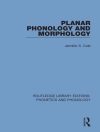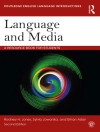What is the value of conversation measured by? Are there more valuable and inferior types of conversation? What role do the contents, the people, and the circumstances play? Do times and epochs shape their own conversations? Conversation norms from handbooks as well as conversations reproduced in texts or reconstructed from texts shed light on these questions. The contributions in this volume are grouped around conceptual questions, specific contexts such as the salon and the table conversation, bring studies on individual literary texts and cover the European cultural history from Plato to the 20th century.
Tabla de materias
Terms.- The Philosophical Dialogue. From sophistical rhetoric to socratic dialectic.- Dimensions of conversation and the value of Socratic conversations in the Platonic dialogues.- Conversation and philosophical conversation.- Reflections on Cicero’s dialogues using the writing ‘On the Speaker’ (De oratore) as an example.- The Renaissance of Conversation – A Brief History of Conversation in the Age of Discourse Revolution.- Should one talk? And if so, about what? Or what not to talk about?- La douceur de la conversation d’après les traités de comportement (fin XVIIème-XVIIIème siècles).- Duties and conventions of conversation: Adolph Freiherr Knigge Back to the Community. Criticism of conversation in German-language reflection on conversation in the 20th century.- Contexts.- ’La nature m’a créee pour la conversation’.- On the Relationship between Conversation, Politics, and Society in Germaine de Staël’s Works Conversation in the salon and among 19th century salonnières in Paris and Berlin.- Transformations of Conversation. On the interplay between salon music and the cultural newspaper.- From Talking at the Table to Table Talk. Genre History and Cultural History (1200 – 1700).- About Luther’s Table Talks.- Texts.- Conversation as a free space. Lessing’s Ernst and Falk (1778/1780).- Conversation between knowledge transfer and pleasure: Georg Philipp Harsdörffer’s conversational games.-‘ Voilà de beaux advis et entretiens ‘ – Forms of courtly conversation in Brantôme’s Les Dames galantes.- ‘Le ris n’empesche pas qu’on ne die verité ‘. L’usage de la moquerie dans les Contes et Discours d’Eutrapel de Noël Du Fail.- ‘ Et lors se metent en autres paroles… ‘ Les changements de sujet dans une conversation littéraire.- Figurative speech about courtly education – Gottfried’s ‘Tristan’ conception in conversation.
Sobre el autor
Christoph Strosetzki is Professor of Romance Studies at the University of Münster.












